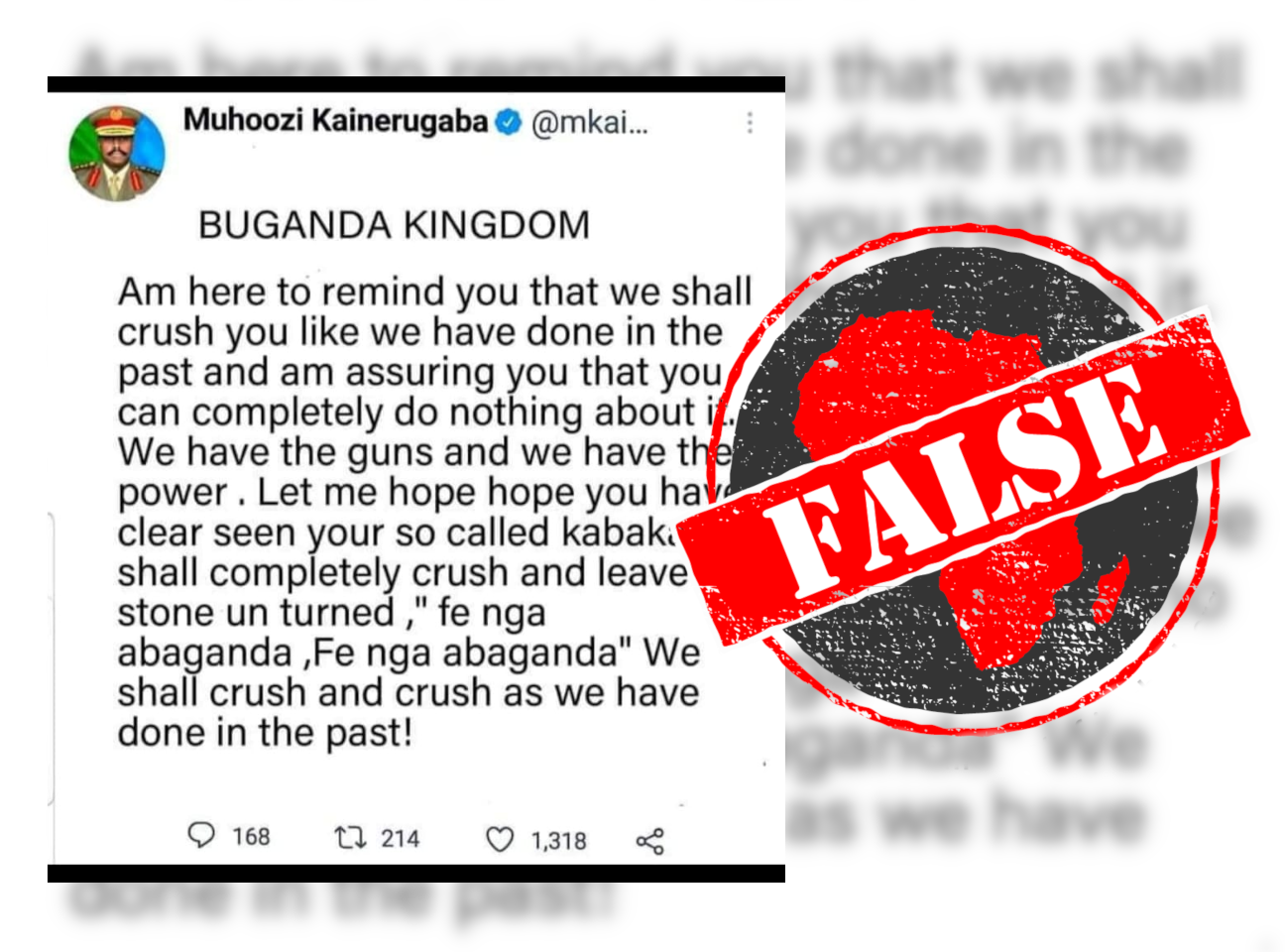A screenshot shared on Facebook appears to be a tweet from a top military officer in Uganda, threatening to “crush” the “Buganda kingdom”.
The tweet reads: “Buganda Kingdom. Am here to remind you that we shall crush you like we have done in the past and am assuring you that you can completely do nothing about it. We have the guns and we have the power. Let me hope hope you have clear seen your so called kabaka we shall completely crush and leave no stone un turned.”
It is attributed to Muhoozi Kainerugaba, the commander of the Special Forces Command, an elite force of Uganda’s military. He is also the son of president Yoweri Museveni.
The screenshot was also shared here and here.
The tweet was posted on 14 April 2021, as the Kingdom of Buganda, a kingdom within the country of Uganda, attempted to dispel rumours that the reigning monarch, or kabaka, Ronald Muwenda Mutebi II, had been poisoned.
The kingdom has previously clashed with the Ugandan government in its push for political autonomy and control of land and taxes.
Museveni’s government has always insisted that the kingdom is only cultural, with no role in governing. In September 2009, the government deployed the military to stop protests by youth loyal to the king.
But did Kainerugaba, a top military officer and Museveni’s son, tweet that the military would “crush” the kingdom?

Tweets ‘false and baseless’
The text of the screenshot doesn’t match the font used on Twitter, but it could be of a tweeted image.
The screenshot also doesn’t show any publication date or time, unlike the usual Twitter format. But most of the posts on Facebook sharing the image were published on 14 April 2021.
However, a careful search through Kainerugaba’s official Twitter page found no such tweet.
Uganda's military spokesperson Flavia Byekwaso also told Africa Check the posts were inaccurate. “The claims are false and baseless,” Byekwaso said.
Republish our content for free
For publishers: what to do if your post is rated false
A fact-checker has rated your Facebook or Instagram post as “false”, “altered”, “partly false” or “missing context”. This could have serious consequences. What do you do?
Click on our guide for the steps you should follow.
Publishers guideAfrica Check teams up with Facebook
Africa Check is a partner in Meta's third-party fact-checking programme to help stop the spread of false information on social media.
The content we rate as “false” will be downgraded on Facebook and Instagram. This means fewer people will see it.
You can also help identify false information on Facebook. This guide explains how.


Add new comment